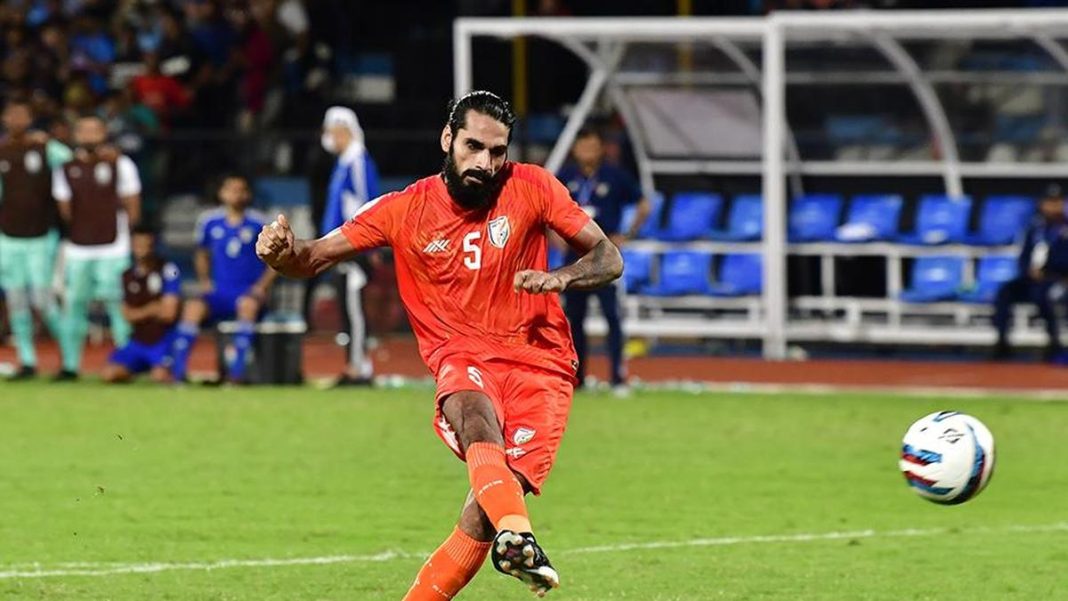The vibrant energy that typically engulfs Indian football during the Indian Super League (ISL) season has been conspicuously absent, replaced by a growing murmur of discontent. What began as apprehension over a temporary halt has now escalated into a chorus of desperate pleas from the very heart of the sport – the players themselves. As the league remains in an indefinite limbo, Indian footballers are stepping forward, articulating a predicament that threatens not just their careers, but the very fabric of professional football in the country.
The Prolonged Stoppage: A Lingering Shadow Over Careers
The ISL, India’s premier football league, has become a cornerstone for the development of the sport and a crucial platform for Indian talent. Its unforeseen and prolonged stoppage, attributed to protracted disagreements and administrative challenges between key stakeholders including the All India Football Federation (AIFF), FSDL (Football Sports Development Limited), and various club representatives, has cast a long shadow. What started as a temporary measure has now stretched into an agonizing wait, leaving hundreds of professional footballers in an unprecedented state of uncertainty.
For players, the impact is multifaceted and severe. Firstly, there’s the critical issue of match fitness and competitive rhythm. Footballers thrive on regular game time, which is essential not only for maintaining peak physical condition but also for honing tactical understanding and team chemistry. Without competitive matches, their skills stagnate, and the prospect of returning to peak performance becomes increasingly daunting. This lack of active engagement directly jeopardises their careers, particularly for younger players whose development curve relies heavily on consistent professional play.
Beyond the pitch, the financial implications are dire. Many Indian footballers, especially those outside the top tier, rely heavily on their league salaries and performance bonuses as their primary source of income. The indefinite suspension translates to delayed payments, partial wages, or in some cases, a complete cessation of earnings, plunging families into financial distress. This economic insecurity breeds immense anxiety, detracting from their ability to focus on their craft and adding an overwhelming burden to their daily lives.
A Collective Cry: Frustration Turning into Desperation
Initially, players expressed frustration and sought clarity through various channels, including their associations and directly with clubs. However, as the weeks have turned into months without a concrete resolution or even a clear roadmap, their collective mood has darkened considerably. The sentiment has evolved from mere annoyance to a profound sense of desperation, a feeling openly voiced by many within the fraternity.
“Our frustration and anger has turned into desperation,” a prominent Indian footballer recently articulated, echoing the sentiments shared across dressing rooms and social media platforms. This powerful statement encapsulates the profound emotional toll the situation is taking. Desperation stems from a loss of control over their professional lives, the fear of an uncertain future, and the sense of being unheard by the very bodies responsible for the sport’s governance. It highlights a critical juncture where the well-being and future of these athletes are at stake.
This escalating desperation is not just about individual livelihoods; it has broader implications for Indian football. The lack of competitive matches directly impacts the readiness of the national team, which relies on a pool of in-form ISL players. Furthermore, the prolonged hiatus risks eroding fan engagement and investor confidence, potentially undoing years of effort to establish the ISL as a credible and exciting league. The trust between players, clubs, and governing bodies is also under severe strain, threatening long-term stability.
The Path Forward: Prioritising Player Welfare and League Revival
The current impasse serves as a stark reminder of the fragile ecosystem that underpins professional sports. While administrative and financial disputes are complex, the human element—the careers and livelihoods of hundreds of dedicated athletes—must remain paramount. The demand for an ISL revival is not merely a request for matches; it is a plea for the restoration of stability, purpose, and dignity for those who dedicate their lives to the sport.
A swift and decisive resolution is imperative. This requires all stakeholders – the AIFF, FSDL, and club managements – to set aside differences and engage in constructive dialogue with a shared vision for Indian football’s future. Transparency regarding the challenges and a clear communication strategy with the players are essential to rebuild trust. Beyond simply restarting the league, there is a pressing need to establish robust mechanisms for player welfare, dispute resolution, and a stable calendar that prevents such disruptions from recurring.
The call from Indian footballers for the ISL’s revival is more than just a demand for their league to resume; it is a desperate appeal to protect the sport itself. Their careers, their passion, and the aspirations of a nation that increasingly embraces football hang in the balance. The urgency of their voice should serve as a powerful catalyst for all involved to act decisively, ensuring that the dream of Indian football continues to flourish, rather than wither under the weight of administrative inertia.




